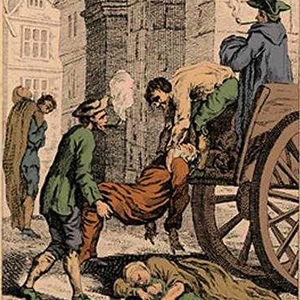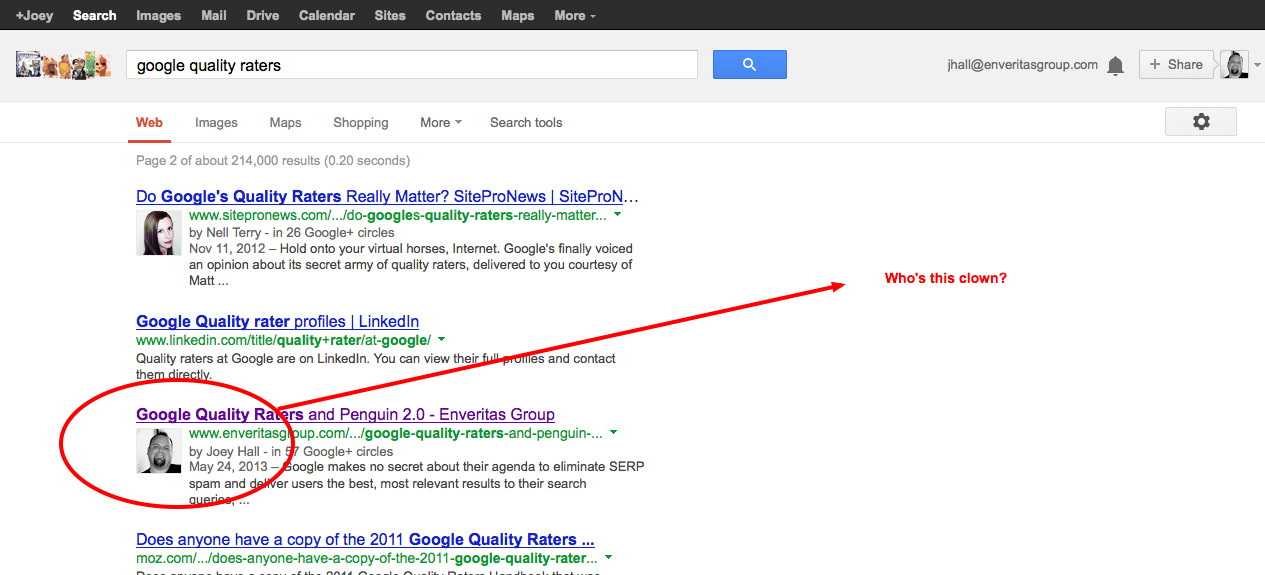Authorship died. And it sucks, man.
Ding! Dong! The Author’s Dead!
Everybody saw it coming. Still, it bothered me how unceremonious the death knell for Google Authorship was.
 I listened to the Kool-Aid pushers at SMX and SES extoll the benefits of authorship. I bought in. I encouraged others at my company to do the same—after all, Google was telling us all it was important, so it had to be important, right?
I listened to the Kool-Aid pushers at SMX and SES extoll the benefits of authorship. I bought in. I encouraged others at my company to do the same—after all, Google was telling us all it was important, so it had to be important, right?
Turns out authorship markup didn’t help identify authority and high-quality content quite like we all hoped it would. Google’s John Meuller wrote in Authorship’s obituary on August 28, “If you’re curious—in our tests, removing authorship generally does not seem to reduce traffic to sites.” Stands to reason there’s an unsaid part of that statement: Authorship markup didn’t exactly increase organic site traffic either.
A history of Google Authorship
Eric Enge’s Search Engine Land article in late August provides insight into the history of Authorship markup and the signals of its demise.
Authorship, from a user perspective, began in 2011 as way for authors to tether their Google Plus profiles to the online content they produced. At the time, many content marketers, self included, painted authorship as Google’s way of incentivizing us to create Google Plus profiles so we could see our faces show up in SERPS. I swear—younger me was a prophetic skeptic.

In any case, everybody who was anybody in the content marketing world created Google+ profiles and synced them to the blogs and websites where our original content appeared. And our little headshots appeared in SERPs alongside our little bios. And there was much rejoicing.
We were now being recognized for the smart people—the authorities—we really were. Sadly, as it turns out, Authorship’s biggest win was making us feel a little too much like Navin R. Johnson. The wet mop to the face—the cup on the keg—was this collection of facts sniffed out by Enge and his colleagues when they interviewed Mueller:
1 – Authors and webmasters didn’t adopt en masse AND when the Big G tried to generate authorship via code, we ended up with misses like Truman Capote writing from beyond the grave.
2 – Author photos and bios didn’t really help users during their searches.
Makes good business sense that a company as smart and savvy as Google would pull the plug on a project that, after a 2+ year trial, never really made its way to the cool kid’s table and wasn’t exactly helping solve anybody’s problems.
Impact on Author Rank
So now that Google is doing away with Authorship markup in SERPS, that means the whole confusing concept of authority (Author Rank) can be forgotten. Right?

Not so fast, my friend.
Writes Danny Sullivan, Google is going to continue exploring ways to “reward” writers it deems authoritative or expert in certain subject areas, and the engine can still determine this by looking at other signals, like bylines correlated with <gulp> high-quality content. Wouldn’t surprise me (The young skeptic me of tomorrow. He’s frustratingly insightful. I’ll write about him soon. You’ll see.) if Google didn’t come out with some helpful byline tips for us all in the near future. Just watch.
Until then, yeah, worry about your byline. Make a donation to the charity of your choice in the name of Google Authorship. And, for the love of Pete, focus on publishing high-quality original content that is useful to your readers. Doing it the right way never hurts!
BTW, check out my new, authoritative byline ∨∨.

Joey Hall – VP Content Marketing



